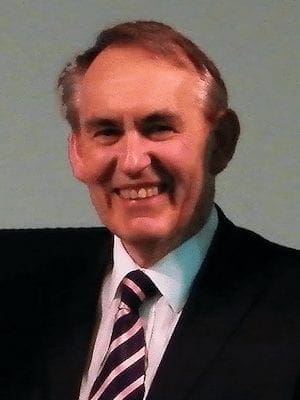While we celebrated Christmas in our churches, those returning from the United Nations Climate Change Conference in Copenhagen might rightly conclude that self is king, mammon is god, and nature weeps.
There was a failure to agree on a legally binding deal to reduce emissions of greenhouse gases and a failure to commit the funding needed to enable developing countries to adapt to climate change and develop sustainably. This will see parts of the world ravaged by rising sea levels, droughts, floods and increasing intensity of rainfall, increasing numbers of environmental refugees and continuing devastation of biodiversity.
The target of keeping the rise in global surface temperature as far below 2 degrees Centigrade as possible is vital to prevent severe global food shortages and death. To achieve this, global carbon emissions must peak by 2016 at the latest and then steadily reduce. This will require a fair distribution of the world’s resources through sustainable living and sacrificial lifestyles.
The challenge for Christians is to heed the words of the prophet Jeremiah: “From the least to the greatest, all are greedy for gain; prophets and priests alike, all practice deceit. They dress the wound of my people as though it were not serious. ‘All is well, all is well’ they say, when all is not well.”
At the end of the Copenhagen conference, Tearfund‘s advocacy director, Paul Cook, said, “The human cost of delay has failed to register with the developed world. They have bought themselves time while millions of people facing starvation, disaster and homelessness continue to pay the price.
“The longer we postpone agreeing a full legal outcome, the more we condemn many people to the devastation of lives and livelihoods. Poor countries should be outraged; they rightly expected rich nations to play a leadership role in negotiations. Instead they ignored the science and looked after their own national interests.”
We tend to worship the gods of profit, consumerism and popularity with the electorate, while in the covenant that God made with his people we read: “You shall not make for yourself an image in the form of anything in heaven above or on the earth beneath or in the waters below. You shall not bow down to them or worship them; for I, the Lord your God, am a jealous God, punishing the children for the sins of the parents to the third and fourth generation of those who hate me, but showing love to a thousand generations of those who love me and keep my commandments.”
We know what to do. We have the technology. Money could be made available. What we lack is the political will. But the risks of inaction are too awful to contemplate.
God warned the people through the prophet Isaiah: “The earth is defiled by its people; they have disobeyed the laws, violated the statutes and broken the everlasting covenant. Therefore, a curse consumes the earth; its people must bear their guilt. Therefore, earth’s inhabitants are burned up and very few are left” (Isaiah 24:5-6). And the judgment of God in Revelation presents a similar picture of environmental destruction when empires seek to control the world (Revelation 16).
During the climate summit, Copenhagen rebranded itself with numerous posters and T-shirts with the logo “I am a citizen of Hopenhagen.”
There is hope. The prophets speak of the heart of the Creator who loves creation, and the gospel reminds us that God so loved the world that he gave his only Son.
There is hope if Copenhagen can be seen as a step on the road, when 192 nations realized the immensity of what needs to happen to address climate change – not the end, but rather the end of the beginning.
There is hope if leaders have been listening to each other and will go on listening, and take the economic and political risks.
Christians can play their part. Redemption is possible, our lives can be transformed, we can find salvation through Christ, and through transformed lives the world can be transformed and creation redeemed.
But be warned, it is much more comfortable to believe that science has got it wrong, to ignore the scientific and green prophets of our age, and sit back and say “All will be well” (Jeremiah 6:10-14), while singing “The Temple of the Lord, the Temple of the Lord” (Jeremiah 7:1-8) or whatever our favorite song might be.
We must keep going into 2010, not simply accepting this weak deal, but also maintaining the pressure on world leaders for a deal that is fair, ambitious and binding.
It’s not too late, but hearts and minds have to change, beginning with us and our influence on our politicians and elected officials, and from them to the leaders of the industrialized and growing industrial nations.
Our hope is in the one whose birth we just celebrated, who declared that he has come to bring life in all its fullness, and invites us to deny self, take up the cross-shaped life of sacrificial love and follow him.
Rev. John Weaver is principal of South Wales Baptist College and a former president of the Baptist Union of Great Britain. He is chair of the John Ray Initiative, which connects the environment, science and Christianity. This column originally appeared in The Baptist Times.
Vice president of the John Ray Initiative (JRI), an educational charity focused on connecting environment, science and Christianity in the United Kingdom. Weaver was principal of South Wales Baptist College until his retirement in 2011 and served as the president of the Baptist Union of Great Britain in 2008-09.

